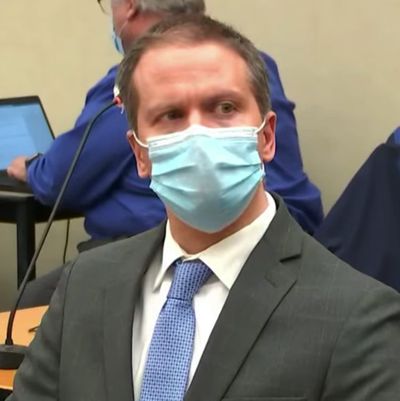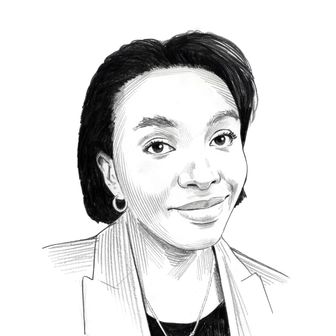
Former Minneapolis police officer Derek Chauvin has been found guilty on all three counts – second-degree unintentional murder, third-degree murder and second-degree manslaughter – in the death of George Floyd. The verdict was announced on Tuesday afternoon, just one day after the defense and the prosecution gave their closing arguments in the trial.
Since Chauvin has no criminal history, each murder charge carries a presumptive prison sentence of 12.5 years, and the manslaughter charge carries a presumptive sentence of four years. However, the sentence for second-degree murder could be as high as 40 years, and the maximum for third-degree murder is 25 years. Chauvin was immediately taken into custody, and will be sentenced in the coming weeks.
Floyd, a 46-year-old Black man, died on May 25th, 2020 after police responded to a call about the alleged use of a counterfeit $20 bill at a Cup Foods convenience store in South Minneapolis. Footage shot by bystanders showed Floyd being pinned to the ground by officers, with Chauvin holding his knee on Floyd’s neck. Early reports suggested that Chauvin, who is white, knelt on Floyd for eight minutes and 46 seconds, a number that became a symbol for those protesting police brutality. Additional analysis of police body-camera footage raised the possibility that it was actually closer to nine minutes and 30 seconds.
Floyd’s death sparked nationwide protests and demonstrations against police brutality last summer, many of them peaceful, but others resulting in significant damage to property and many arrests. Cities across the country, Minneapolis especially, have been preparing for potential unrest in light of the impending verdict, with many governors activating their national guards and increasing police presence in downtown areas. President Biden weighed in on the trial earlier on Tuesday, saying he’d talked with Floyd’s family and was “praying the verdict is the right verdict.”
The 12 member jury deliberated for about 10 hours following 14 days worth of testimony and evidence presented by both sides. During the trial, the prosecution called many people who watched Chauvin restrain Floyd, such as Darnella Frazier, the then 17-year-old who filmed the viral bystander video, and medical experts who suggested Floyd died from a lack of oxygen.
A notable aspect of the prosecution’s case was their usage of law enforcement officials as witnesses, with the intent of showing Chauvin’s behavior as being atypical for police officers and even against departmental policy. Several current members of the Minneapolis Police Department took the stand against Chauvin, including Police Chief Medaria Arradondo, something that is rarely seen in legal cases against police officers.
The defense sought to prove that Floyd’s death wasn’t solely the result of Chauvin’s actions, pointing to Floyd’s history of cardiovascular disease and the presence of fentanyl in his bloodstream, as seen by the medical examiner’s toxicology report.
The Minneapolis Star-Tribune reported that the three other officers involved in the arrest, J. Alexander Kueng, Thomas Lane, and Tou Thao, face their own charges of “aiding and abetting both second-degree unintentional murder and second-degree manslaughter,” which will be adjudicated in a separate trial.






























